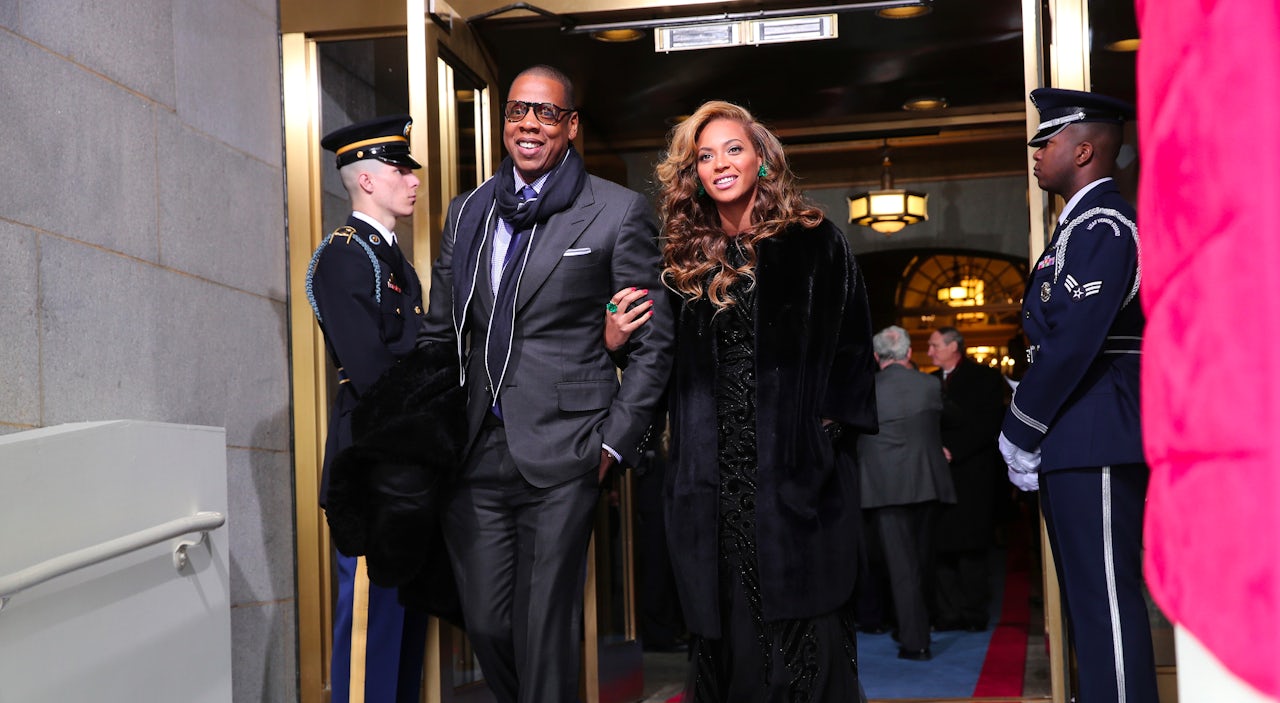It’s usually not a good idea to ignore the moves made by Jay-Z. The 47-year old rapper has done more than simply evolve alongside the music industry, which has seen a dramatic shift with the advent of streaming; he’s been a catalyst for a profoundly more artist-centered strategy in the business. He presold a million digital copies of his album Magna Carta Holy Grail to Samsung, guaranteeing an instant platinum certification and forcing the RIAA to change the rules around how it counts digital sales. That gambit has now been replicated in various forms by artists including Rihanna and Arcade Fire. And no matter your opinions on Tidal — the streaming service that Jay acquired in 2015 — it pays artists more per stream and gives them more power over distribution. Now, Jay is taking this artist-first approach to music media.
On August 18, Jay was interviewed for an episode of the Rap Radar, a podcast hosted by veteran music journalists Elliott Wilson and Brian “B.Dot” Miller, to discuss his latest record, the refreshingly confessional 4:44. The well-regarded interview series was recently brought to Tidal, though it’s not placed behind the service’s paywall — in other words, Jay was able to use the interview to elevate his own streaming platform without limiting the potential audience.
The 70-minute interview had the air of a high profile statesman sitting down with an evening news host. Jay, who seldom gives interviews, effectively checked off every public scandal swirling around him, delivering well-packaged sound-bites that were quickly disseminated throughout the music press. His relationship with Kanye? According to Jay, he was hurt by West’s invocation of his family on stage. The infamous elevator footage of Solange kicking him? He says it was his first and only major disagreement with Solange, who he calls “a sister.” His thoughts on critics who took issue with a line on his record about Jewish people? “If that's the only line you pick out, you're a hypocrite,” Jay fires back.
It’s a masterful packaging of the artist’s public persona, another example of his uncanny talent in the realm of public relations. (This talent, which he shares with his wife Beyoncé, turned a deeply personal saga into two best-selling albums.) But what does it mean for an artist to so completely control their narrative? The Rap Radar interview, part two of which is set to arrive “soon,” features tidbits of information that fans will find compelling, but the episode also comes off as an extended advertisement. Every answer is well planned, and there are few follow up questions. Why would there be? Wilson and Miller are effectively interviewing their boss.
Music magazines and celebrity gossip rags once played a vital role in getting an artist’s message out into the world, but the battle for time and attention has shifted. Increasingly, streaming platforms are encroaching on space once occupied by media organizations. Last year, Spotify announced that it would be launching a slate of original video content centered around music and pop culture. Apple Music now produces full-length documentaries from artists and is moving aggressively into developing original content. Apple already uses the programming on its Beats 1 radio station as a means of promoting new releases available on the platform. It creates a closed loop: Artists release records on a streaming service, which then packages an exclusive interview or documentary on the same app. In this context, the interview is more of a product than a piece of journalism.
Jeff Ihaza and Joshua Topolsky talked about Jay-Z's media control on our daily podcast, The Outline World Dispatch. Subscribe on Apple Podcasts or wherever you listen.
As streaming platforms branch into other forms of media, from podcasts to short documentaries, artists are taking more control of every aspect of their relationship with the public. Music journalism has always depended on artists for access to some degree, but streaming platforms are completely beholden to them.
Wilson and Miller were effectively interviewing their boss.
The dynamic points to a continued blurring of the lines between entertainment and news. The more ways that artists and other influential figures can craft a public facing image, the more difficult it becomes to decipher what’s real or artifice. The social web, for all of the democratization it promised, still gives an inordinate amount of power to those with resources to present a manicured public persona.
This creates something of an existential crisis for music journalists who, in the face of irrelevance, are increasingly conciliatory to artists. Commentators have long lamented the diminishing influence of music critics in the new world of streaming. Earlier this month, the Wall Street Journal analyzed hundreds of music reviews and could only find a handful of negative ones. There’s little evidence to suggest that as artists ability to control their image increases, music journalists' jobs won’t ultimately be that of a PR agency —if they’re lucky.
